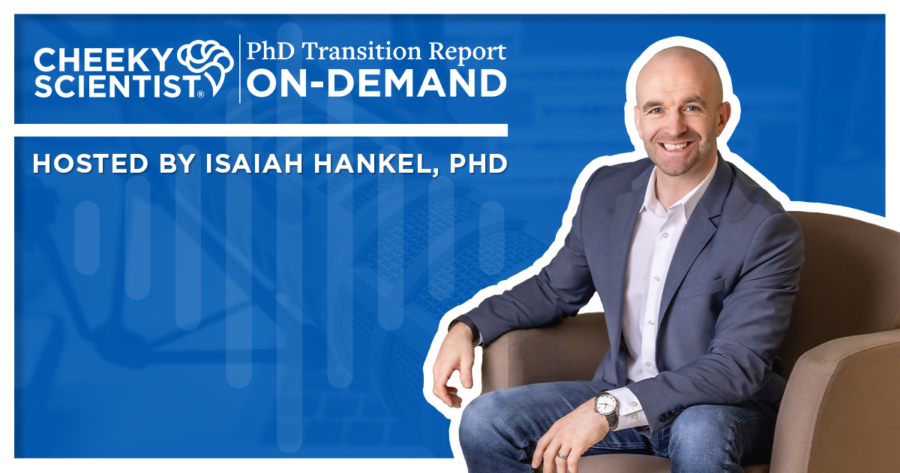Hosted By

Chief Executive Officer Cheeky Scientist

Join Isaiah and hear about how keeping your ego and sense of entitlement in check is crucial if you want to succeed in industry
Here’s a quick rundown on this week’s episode:
- First, Isaiah explains that employees with a strong sense of entitlement lead to tangible loss at companies, and employers avoid them at all costs
- Next, he examines a few ways that PhDs can, sometimes accidentally, come across as egotistical
- Finally, Isaiah gives PhDs a few counter behaviors they can use to make sure they aren’t coming across as self-serving or full of yourself
From This Week’s Show…
There’s A Difference Between A Sense Of Entitlement And Confidence
Insecurity and self-doubt rank the highest among the personal setbacks that nearly every PhD deals with.
But there’s a flip side to that coin – feeling entitled to a job, better pay or success in general.
It might sound like, at worst, a personality flaw, right?
Well, there’s actually a landmark study that suggests businesses can quantify the toll that entitlement can take on their bottom line.
People who feel entitled tend to focus on self-optimization, not collective growth.
They disrupt the flow of business and waste company time and resources. Businesses estimate that entitlement costs their company 6 -21% of annual revenue.
That means the annual “cost of entitlement” would translate to well over a billion dollars for the average Fortune 500 company.
There Are 3 Things You Can Do To Avoid Giving Off A Strong Sense Of Entitlement
There are 3 things you can keep top of mind that’ll make sure you keep from feeling entitled, or at least coming across that way, when interviewing for industry positions.
First, listen and discuss. Swiss psychiatrist Carl Jung said that an entitled personality “is hypnotized by itself, and therefore, cannot be argued with.”
No one is comfortable talking to someone that doesn’t seem to value or even respect their opinion.
This is why it’s important to remain engaged no matter the situation – in interviews, meetings, or even in casual office conversations.
Second, have a beginner mindset.
Michelangelo is famously quoted as saying, “I’m still learning.” while he was working on St. Peter’s Basilica at the age of 87.
As a PhD, you are a lifelong learner.
So, it can be helpful to remember – and express to others – that talent and knowledge are not fixed traits.
For one, it keeps you humble.
For another, it helps identify knowledge gaps within an organization.
Identifying and developing ways to fill those gaps is a way to demonstrate your value.
Know And Demonstrate That You Believe All Work Has Value
You don’t have to be a PhD to think that a job is “beneath you.”
…
** for the full podcast, check out the audio player above.
Ready to start your transition into industry? Apply to book a free Transition Call with our founder Isaiah Hankel, PhD or one of our Transition Specialists. Apply to book a Transition Call here.










